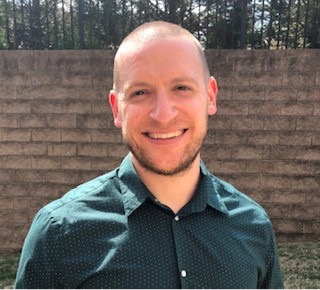Adjunct Instructor
Division of Clinical Rehabilitation and Mental Health Counseling
Department of Health Sciences
Email: corey.pitts@med.unc.edu
Education
MA – Clinical Mental Health Counseling
Lenoir-Rhyne University – Hickory, NC
BA in Psychology
Lenoir-Rhyne University – Hickory, NC
About Corey
Corey Pitts is an ambitious, strength based counselor who graduated from Lenoir Rhyne University in Hickory, North Carolina. He holds a Master of Arts in Clinical Mental Health Counseling, as well as a Bachelor of Arts in Psychology. Corey’s professional credentials include Licensed Clinical Mental Health Counselor (LCMHC), Licensed Clinical Addiction Specialist (LCAS), and Certified Clinical Supervisor Intern (CCS-I) licensures in the state of North Carolina. He has been practicing therapy for 7 years.
His expertise stems in the treatment and management of co-occurring disorders, which includes experience in the management of trauma, anxiety/depression related disorders, and substance use/misuse, as well as aspects of self-concept & self-esteem. During his practicum/internship, he worked with marginalized populations, which included work with Exodus Homes in Hickory, NC, providing individual counseling sessions for persons re-habituating to society post-incarceration. He also has experienced in working in medication assisted treatment (methadone/suboxone) for opioid use disorder, providing individual/group counseling services for Mcleod Addictive Disease Center for 3 years. He currently works as a private clinician, as well as for UNC Hospitals Substance Treatment and Recovery Program (STAR). Although he has knowledge in several treatment interventions, he tends to favor Solution Focused Therapy, Glasser’s Reality Therapy/Choice Theory, as well as Cognitive Behavioral Therapy/Dialectical Behavioral Therapy (CBT/DBT) techniques. He also has experience in providing bio-psycho-social assessment and group therapy.
His approaches to counseling are grounded in holistic wellness and choice theory. Holistic approaches include inquiry about different aspects that make up your life and that you believe contribute to making you well or less well. These sometimes include mental wellness, body wellness, spirit wellness, emotional wellness, and connection wellness. He also approaches therapy with use of choice theory, which posits that humans are motivated by a never-ending quest to satisfy 5 basic needs woven into our genes: to love and belong, to be powerful, to be free, to have fun and to survive. Specifically: survival, belonging, power, freedom, and fun.
